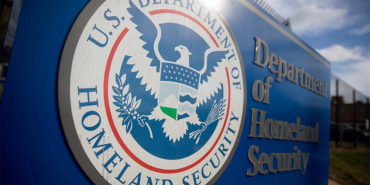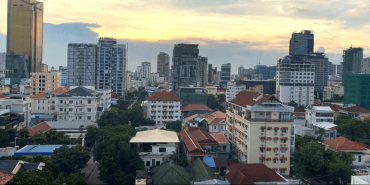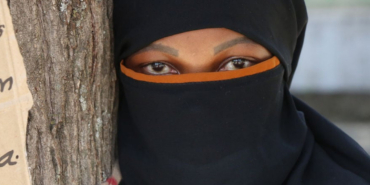Critical Checks Kenyan Healthcare Workers Must Complete Before Accepting UK Sponsorships

Amidst evolving immigration policies in the United Kingdom, Kenyan healthcare professionals eyeing opportunities abroad must exercise caution and conduct thorough due diligence to navigate the complexities of sponsorship regulations, legal experts caution.
Recent shifts in the UK's immigration landscape, particularly concerning the Certificate of Sponsorship (CoS), a critical component for securing work visas, have prompted concerns about potential pitfalls for unsuspecting migrant workers. The allure of enhanced career prospects and higher wages in the UK often overshadows the intricacies of sponsorship compliance, making it imperative for Kenyan healthcare workers to verify the legitimacy of their sponsors, according to legal experts. Failure to do so could lead to dire consequences, including employment restrictions and deportation.
Kevin Karue, an immigration lawyer with RexLaw & Beacon Group, has observed an alarming trend of Kenyan healthcare workers arriving in the UK only to discover that their sponsorship agreements were either fraudulent or insufficiently secure. Karue emphasizes the need for increased awareness among migrant workers regarding the complexities of UK sponsorship laws. Many assume that obtaining a CoS automatically guarantees work rights, only to realise that a sponsor's compliance directly impacts their legal standing.
Karue underscores the urgency of conducting background checks on prospective employers, highlighting that failing to perform due diligence is a common mistake among healthcare workers seeking opportunities abroad. Too often, individuals focus on securing a job offer without taking the necessary steps to verify the employer's licensing status with UK Visas and Immigration (UKVI). Under UK immigration law, not all sponsors are created equal. An employer may hold a sponsorship license, but this does not necessarily mean they are adhering to legal protocols.
Some organisations, while technically licensed, may have compliance violations that can result in their sponsorship privileges being revoked. Migrants unaware of these complications risk arriving in the UK only to face unemployment if their employer suddenly loses the ability to legally employ foreign workers. Karue advises all healthcare professionals considering employment in the UK to check the UKVI register of licensed sponsors—a publicly accessible list that tracks companies authorised to issue sponsorships. This database is regularly updated to reflect any changes, including suspensions or revocations of employer licenses.
Healthcare workers must also be vigilant against the increasing prevalence of fake Certificates of Sponsorship issued by unlicensed agents and companies that exploit hopeful job seekers. These deceptive entities present migrants with convincing-but fraudulent—documentation, leading to legal troubles once workers arrive in the UK. Fraudulent sponsorships can take multiple forms. Some companies falsely claim they have an active sponsorship license, while others issue forged CoS documents to bypass regulations. Unsuspecting workers who accept these offers often find themselves unable to legally work upon arrival, with limited options to remedy their situations.
To combat this issue, Karue encourages prospective migrants to conduct thorough checks before accepting job offers. Beyond verifying an employer’s sponsorship status, workers should examine company reviews, employee testimonials, and industry reputation. If a potential employer demonstrates a lack of transparency or refuses to provide clear legal documentation, job seekers should regard this as a red flag and seek professional guidance before proceeding.
Another overlooked aspect of UK sponsorship compliance is the rating system assigned to registered employers. Under UK law, sponsors fall into two categories: A-rated and B-rated. An A-rated sponsor is fully compliant and authorised to recruit employees from overseas. In contrast, a B-rated sponsor faces restrictions and can only hire individuals within the UK. Companies in this category are often under heightened scrutiny due to previous compliance failures, making them less reliable as sponsors.
Karue stresses that prospective healthcare workers should verify their employer’s rating before accepting offers. A B-rating can indicate past violations or ongoing investigations, which may result in sponsorship license suspension. If a sponsor loses their certification, the affected worker could have as little as 60 days to secure another sponsor before their visa status becomes invalid. The implications of overstaying in the UK are severe, including legal consequences that could hinder future residency or work applications.
Beyond sponsorship verification, Karue emphasises the importance of upskilling before migrating to the UK. Many healthcare roles, particularly those in home care and community nursing, require employees to possess a valid driver’s license—yet many Kenyan migrants neglect this requirement.
Under UK regulations, individuals with foreign driver’s licenses can use them temporarily upon arrival. However, in many cases—including for Kenyan migrants—the license must be exchanged for a UK-issued permit within 12 months. Workers unaware of this restriction may encounter difficulties in meeting employment expectations, particularly in roles requiring travel to patient homes.
Unlike some nationalities that benefit from automatic exchanges, Kenyan citizens must undergo additional steps to obtain a UK driving license. Delays in processing or failure to meet requirements can limit job prospects, placing migrants in a challenging position after arrival. Karue advises healthcare workers to familiarise themselves with these requirements and ensure they possess the necessary credentials before departure.
Navigating the complexities of UK immigration laws can be overwhelming, particularly with sponsorship regulations constantly evolving. Karue stresses that consulting an immigration expert is essential for workers seeking clarity on their rights. Unfortunately, many migrants rely on informal advice from social circles rather than professional guidance. Misinformation can spread quickly, leading individuals to make decisions that compromise their legal status. To avoid such pitfalls, healthcare workers should seek certified immigration lawyers with expertise in UK visa applications.
Selecting the right lawyer requires careful research. Karue recommends verifying the professional qualifications of legal advisors and seeking recommendations from established communities. A well-informed legal counsel can prevent costly mistakes, ensuring a smooth transition to life in the UK.
As migration trends continue to rise, Kenyan healthcare workers must equip themselves with the knowledge to navigate UK sponsorship rules effectively. The excitement of new opportunities should not overshadow the necessity of verifying sponsors, understanding compliance requirements, and securing essential qualifications before moving abroad.














Add new comment